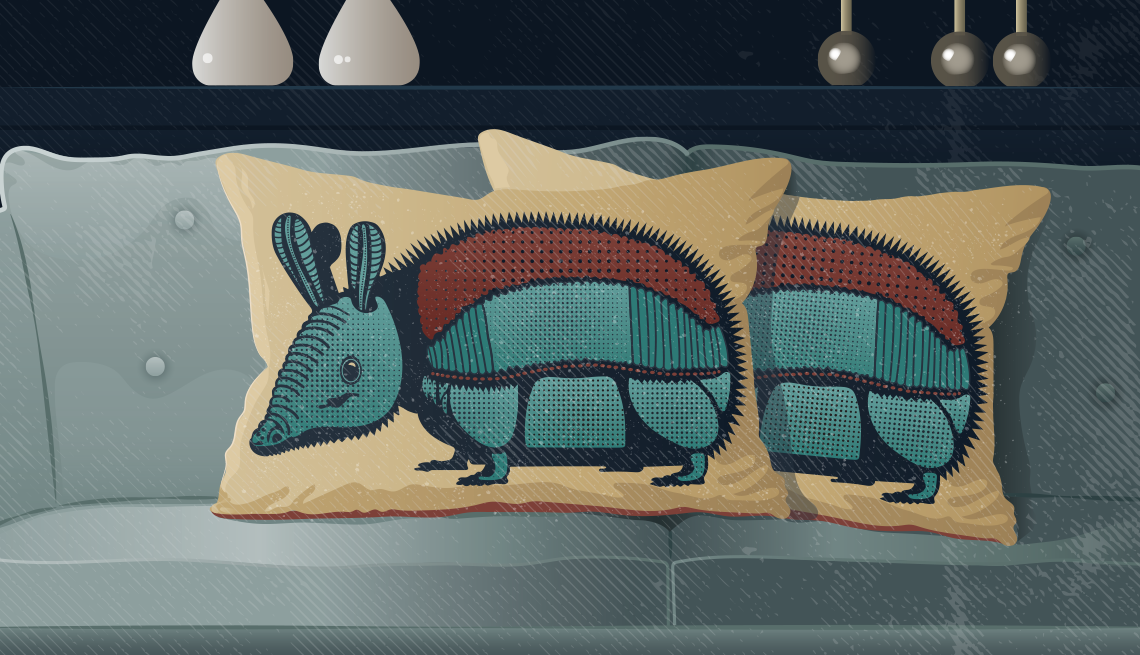
- Select a language for the TTS:
- UK English Female
- UK English Male
- US English Female
- US English Male
- Australian Female
- Australian Male
- Language selected: (auto detect) - EN
Play all audios:
But a long marriage means forgiveness and making concessions. My mother now gives my father recipes. She gets to feel in command, and my father may use whatever gadgetry he wants, so long as
he follows the recipe. Recent reports on his tuna noodle casserole: “It was actually pretty good,” my mother conceded. I used to think myself above such gender stereotyping. Growing up, I
found the zones embarrassing. The way my mother feigned helplessness at pumping gas and unscrewing jars. Or how my father completely lacked the ability to pick out his own clothing. I
cringed at such dependency. But then I got remarried a decade ago, when I was in my 40s, and zones collided. I began to reconsider the advantages of defined responsibilities. And even the
squishy vulnerability of interdependence. Before I met my husband Paul, years of singledom meant, like it or not, I had all the zones. No one unscrewed my mayonnaise lids. I didn’t need a
man to maintain my car. Moreover, unlike my mother, I cleaned my own gutters, mowed the lawn and even laid drywall. NEW TERMS AND CONDITIONS So imagine my surprise one day, early in my
marriage, when I began surveying the contents of Paul’s closet. I questioned why a middle-aged professional needed five different pairs of camo cargo shorts. I encouraged the destruction of
a threadbare T-shirt showing an accordion player and the words “polka pimp.” I lavished praise on him when he wore a pressed shirt. And then I realized — I was dressing him. I had become my
mother. Meanwhile, Paul had his zones too, and proclaimed: “I’ll roll the trash out. Please don’t do that. I don’t want people to think I’m some sort of a jerk.” This was in Texas.
Apparently, there is some unspoken code of honor with men and rolling garbage bins. I thought I had an egalitarian, without-gender-borders marriage, only to discover this whole zones
business had imprinted itself on my brain. OK, I’ll be the little lady and let my husband haul the trash to the curb. We’ll be modern and call it a “love language.” But what really pushed me
over the edge was decorating. I could not believe Paul wanted a say about our home furnishings. I wanted him stripped of all voting rights. This was my God-given zone! Little did I know,
this had been Paul’s zone. He had always been allowed to decorate with abandon. I thought him decorated-abandoned — as in, his ex-wife took all the nice things and left him with a
wagon-wheel coffee table. But no, he picked that out himself. He, too, had grown up with zones, but opposite zones than the ones I had seen. In Paul’s childhood, his father’s things
dominated the communal living areas — model ships, fossil collections, meteorites, taxidermy fish, wood-carved signs, an international flag collection. It was all one big man cave. I once
asked him, “How did your mother stand this?” “She didn’t care. She wanted five children. Because she won on that, she let go of the rest.” The author and her husband don't always see
eye-to-eye on home décor choices, but have learned to compromise when necessary. Courtesy Schorn DRAWING THE DECORATING LINE I could not comprehend this. No man in my family had ever voiced
an opinion about interior decorating, and the women in my family were extremely house-proud. Maybe too proud. My maternal grandmother bought new furnishings the way other people buy outfits
each season. Silk upholstery, Persian carpets, Danish modern credenzas. My father never questioned my mother’s birthright as Keeper of the Pretty Things. Heck, this was a man who couldn’t
match his socks. He knew better than to wade into those waters and express opinions.



